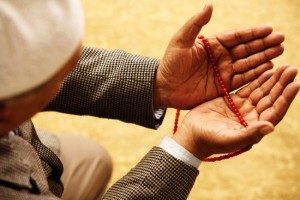Answer
In this counseling answer:
“Just because we love our spouses or our parents or children and cannot imagine life without them, it does not mean we are committing shirk. It just means we are normal human beings who love.”
As Salamu ‘Alaikum sister,
Thank you for writing to us. As I understand it, you are concerned that your marriage is either not valid or that you have sinned against Allah (swt) for loving your husband.
You state you made ishtakhara and maybe saw signs you thought were negative but married him anyway. Our scholar states “after making Istikharah you must use your own intelligence and weigh up the situation.
Think through the possible consequences of any actions you take with the help of research and other people’s advice.
It is again going back to the old “have trust in Allah but also tie your camel” philosophy.”
Sister, it sounds as if you are taking a lot of symbols, words, and occurrences which are normal in life and making them superstitious or creating something that does not exist.
If you and your husband have a good marriage, he is a pious and things are working out, you have made a good choice.
As far as fearing you love your husband more than Allah (swt) just because you do not want to leave him is like comparing apples and oranges.
Allah (swt) wants us to have loving spouses. He wants us to love and be faithful and true to our spouses.
Just because we love our spouses or our parents or children and cannot imagine life without them, it does not mean we are committing shirk.
It just means we are normal human beings who love.
As several imams have already told you that your marriage is valid, you need to ask yourself, “why would Allah want me to leave my husband”? I suggest you write down all the reasons your husband is a good spouse and Muslim.
Then examine the requirements for marriage according to the Qur’an and Sunnah.
I am sure you will see your marriage is a good thing – something that is pleasing to Allah (swt).
As far as insincerity, it is very evident by your question that you sincerely love Allah (swt).
Yet, you carry this huge guilt around feeling your love is insincere.
Islam is liberating in the sense that we don’t dwell in guilt in Islam.
If we sin, we make tawbah with sincerity, and we move on.
Sincerity means;
“being genuine, having faith and trust in yourself, and just being you, rather than trying to project something that you are not.”
In view of what sincerity truly is, could it be possible you do not have faith and trust in yourself?
Is there something in your life that has caused you to not trust your own self?
These are questions which you may in sha’ Allah want to examine more closely.
I do not think the problem is between you and Allah (swt) as you seem to be a very conscious, pious Muslim.
It seems to lie within you, yourself as a person.
Sister, as you talk about signs and feeling as though they hold mysterious meanings, it leads me to believe that you may be suffering from a possible mental health disorder such as Obsessive Compulsive Disorder (OCD) or more specifically obsessive thinking.
While I cannot diagnose you, it appears that you may be possibly suffering from a type of OCD.
In OCD, especially in cases of obsessive thinking, “unhealthy worry is part of a broader problem called obsessive thinking.
Obsessive thinking is an inability to gain control over recurrent, distressing thoughts, images.
These thoughts and images are embedded in a complex network of feelings, sensations, and at times, behavioral rituals and routine.
Based on your symptoms, fears, and attributions of thought, dear sister, I would highly suggest you seek counseling in your area with a therapist who can assess your situation, provide a correct diagnosis, and recommend treatment.
If you are diagnosed with a disorder and dedicate yourself to following the treatment plan, you will feel so much better.
In sha’ Allah these disturbing thoughts will go away.
You are in our prayers sister. Please let us know how you are.
***
Disclaimer: The conceptualization and recommendations stated in this response are very general and purely based on the limited information provided in the question. In no event shall AboutIslam, its counselors or employees be held liable for any damages that may arise from your decision in the use of our services.



